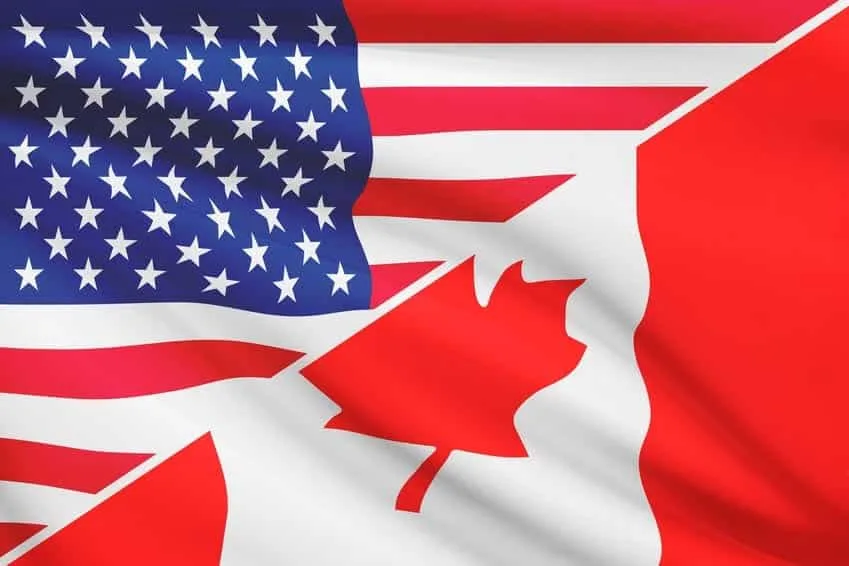Discover how a Canadian family achieved 239% returns using strategic...
Read MorePowerful Shift: Why Canadians Are Ditching U.S. Travel in 2025
Canadians Rethink Cross-Border Trips as Trade Tensions Rise
Canadian cross-border travel patterns are shifting sharply in 2025, as newly released Statistics Canada data reveals a significant drop in visits to the United States. In June, the number of Canadians returning from the U.S. by car fell by 33.1%, while return trips by air dropped 22.1% compared to the same month in 2024.
The reason? A growing chill in diplomatic and economic relations. The decline coincides with heated rhetoric and escalating trade friction from the new U.S. administration. Verbal attacks targeting Canada’s sovereignty have led many Canadians to rethink their southern travel plans, opting instead for destinations outside North America.
While U.S. visits dropped, Canadians are still traveling overall. In fact, return trips from non-U.S. destinations increased by 7.3% in June. This indicates a redirection rather than a full retreat — Canadians remain travel-hungry, just not when it comes to crossing the U.S. border.
U.S. Travel to Canada Also Slows — But Less Sharply
The chill isn’t entirely one-sided. The number of U.S. residents visiting Canada by car declined 10.4% in June. However, air travel remained relatively stable, falling only 0.7% year-over-year.
This divergence highlights a complex picture: while Canadians are reacting strongly to political rhetoric and trade policy, American travel behaviors are changing more moderately — especially when it comes to flights rather than road trips.
Geopolitics, Not Weather, Drives the Shift
This isn’t about snowbirds avoiding the Florida heat or pandemic-era health fears. Instead, it’s a clear reaction to economic policies and growing geopolitical unease. The chill in cross-border travel is closely tied to ongoing tariff threats, trade war dynamics, and a decline in diplomatic goodwill.
The impact of the U.S.–Canada trade relationship now goes beyond supply chains and stock tickers — it’s hitting vacation plans and border traffic.
Travel Diversification: Canadians Look Beyond the U.S.
Notably, Canadians are redirecting their travel budgets to other international destinations. According to Statistics Canada, arrivals to Canada from non-U.S. countries remained flat, indicating that global travelers still view Canada as a stable and attractive destination.
Meanwhile, Canadians are broadening their horizons — a potential economic boost for Europe, Asia, and domestic tourism within Canada. Airlines and travel operators could see new opportunities in long-haul routes and intercontinental travel packages.

What This Means for Investors and Planners
This shift in consumer behavior is more than just a footnote in a tourism report — it has economic and portfolio-level implications:
-
Retail & Hospitality Investors: Businesses in Canadian border towns and U.S. destinations may feel a pinch. This could impact hotel REITs, transportation stocks, or retail chains that depend on Canadian tourists.
-
Currency Watchers: Cross-border spending is often tied to exchange rate dynamics. A decrease in Canadian tourist spending abroad could subtly influence CAD-USD flows.
-
Policy Analysts & Advisors: The data suggests a sustained trend, not a temporary blip. As geopolitical tension persists, this could reshape tourism-related forecasts in upcoming quarters.
Final Thoughts: A Wake-Up Call for Border Economies
The message from June’s cross-border travel data is clear: Canadians are intentionally shifting their travel preferences, motivated by both sentiment and sovereignty. While not all Americans are staying away, the overall trend is one of cooling mobility.
For policymakers, investors, and cross-border business operators, this is a signal worth monitoring as the landscape of travel, diplomacy, and economic exchange continues to evolve in 2025.
You may also interested in
Canadian Soldier Achieves 204% ROI with Investment Loan and Segregated Fund| AiF Clients
Zack, a Canadian soldier in his 40s, turned limited savings...
Read MoreFrom $100K to $520K: How a Millennial Actuary Couple Achieved a 154% Leveraged Return| AiF Clients
Discover how a millennial actuary couple used investment loans and...
Read MoreCan Non-Residents Invest in Segregated Funds in Canada?Hazel’s Journey with Ai Financial| AiF Clients
Hazel, a non-resident mother in Canada, invested CAD $200,000 across...
Read MoreFrom Anxiety to Empowerment: How a Mom of 3 Gained $67K in 20 Months | AiF Clients
Zara, a working mom of three, turned $200K into $259K...
Read More




